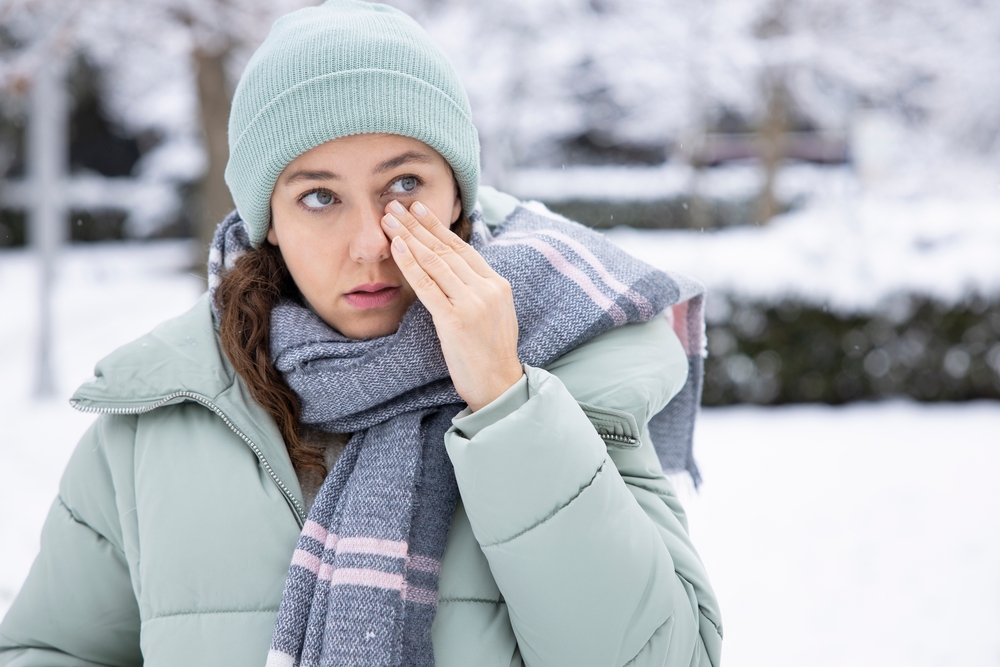
Winter brings a host of exciting activities and experiences. Yet, it's also notorious for inciting discomfort in the form of allergies and dry eye, negatively impacting our eye health. The chill in the air often triggers allergies, leading to symptoms like sneezing, congestion, and itchy eyes. Dry eyes can leave you with a stinging sensation, redness, and blurry vision. Taking the necessary precautions can save us from the discomfort and help us enjoy the season in all its glory.
The Link Between Cold Weather and Eye Health
The connection between cold weather and eye health is more profound than we might initially think. When the temperature drops, the air becomes less humid, leading to dryness in the environment. This dryness can cause the tear film in our eyes to evaporate at a faster rate, resulting in dry eyes.
Winter also brings along allergies. The allergens in the environment, such as dust mites and mold spores, become more active during winter. They thrive in warm, indoor environments, making our homes a hotbed for these allergens. Our immune system reacts to these allergens, resulting in symptoms like a runny nose, itchy throat, and irritated eyes.
Strategies to Combat Winter Allergies and Dry Eye
Fighting winter allergies and dry eye requires a proactive approach. Here are some strategies to combat these winter woes:
1. Maintain Humidity: Use a humidifier to maintain a healthy humidity level in your home. This can help reduce the dryness caused by heaters and provide relief to your eyes.
2. Regular Cleaning: Regularly clean your home to reduce the presence of dust mites and mold spores. Use a vacuum cleaner with a HEPA filter for effective cleaning.
3. Eye Care: Use artificial tears to keep your eyes lubricated. Avoid rubbing your eyes as it can further irritate them.
4. Protective Wear: Wear sunglasses or protective eyewear when going outdoors to prevent the cold wind from drying out your eyes.
By adopting these strategies, you can effectively manage winter allergies and dry eye, ensuring a comfortable winter season.
Treating Winter Allergies and Dry Eye
An optometrist plays a crucial role in treating winter allergies and dry eye. They can accurately diagnose your condition and provide a customized treatment plan.
Optometrists have the expertise to differentiate between dry eyes caused by allergies and those resulting from other factors. They can recommend eye drops, ointments, or other treatments to manage symptoms effectively.
They can also provide valuable advice on maintaining eye health during winter, such as suggesting the use of humidifiers or recommending suitable protective eyewear. Regular check-ups with an optometrist can also help in early detection and treatment of any eye-related issues.
Enjoying the Winter Season with Comfortable Eyes
Winter allergies and dry eye can be a nuisance, but with the right strategies in place, they can be effectively managed. Understanding the link between cold weather and eye health, recognizing common winter allergies and their impact on the eyes, and implementing strategies to combat these issues can help ensure a comfortable winter.
If you are experiencing persistent symptoms of allergies and dry eye, consult with our professionals at Blue Hills Eye Associates in our Braintree, Massachusetts, office. Call (781) 794-2200 to schedule an appointment today.








